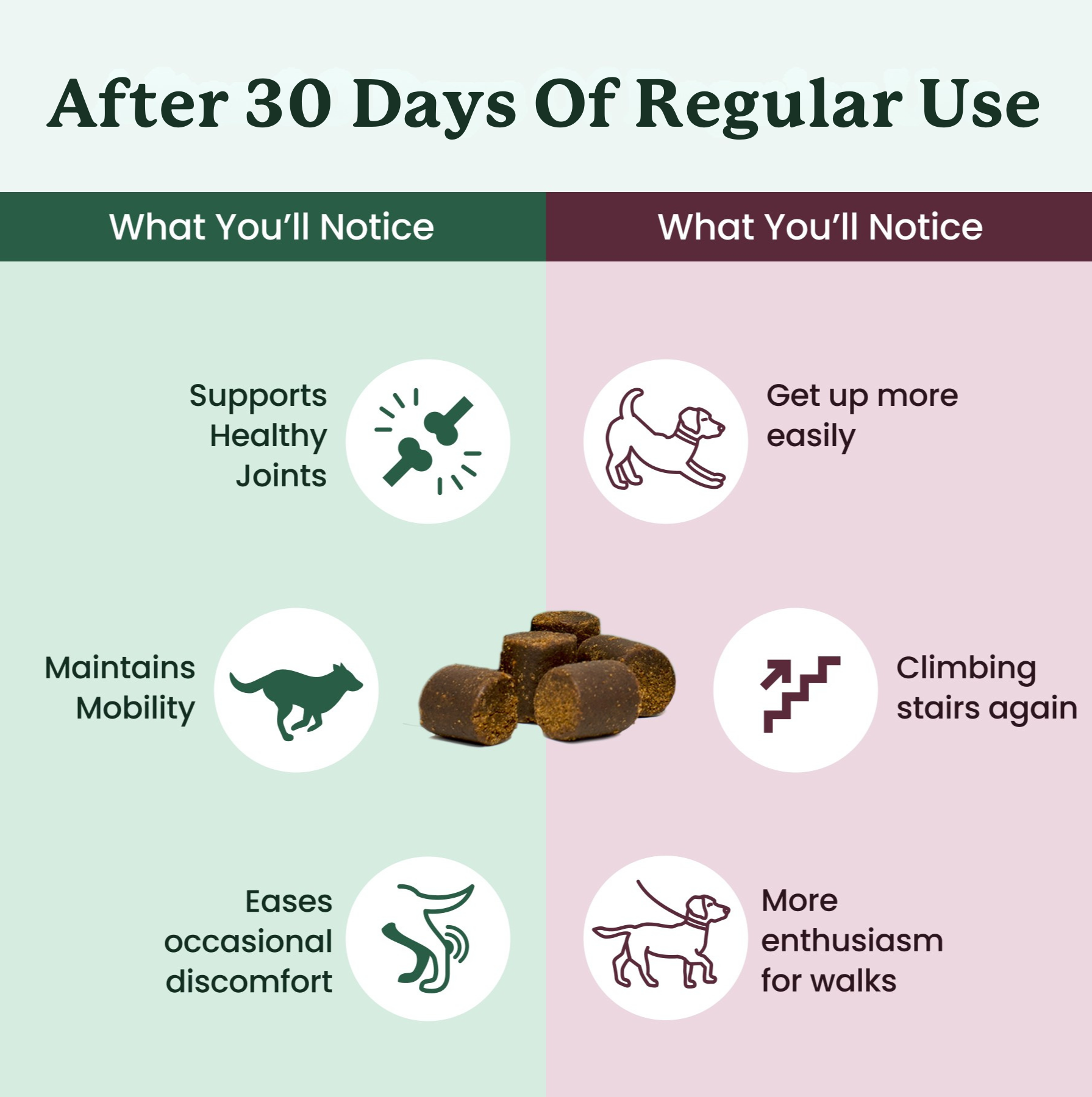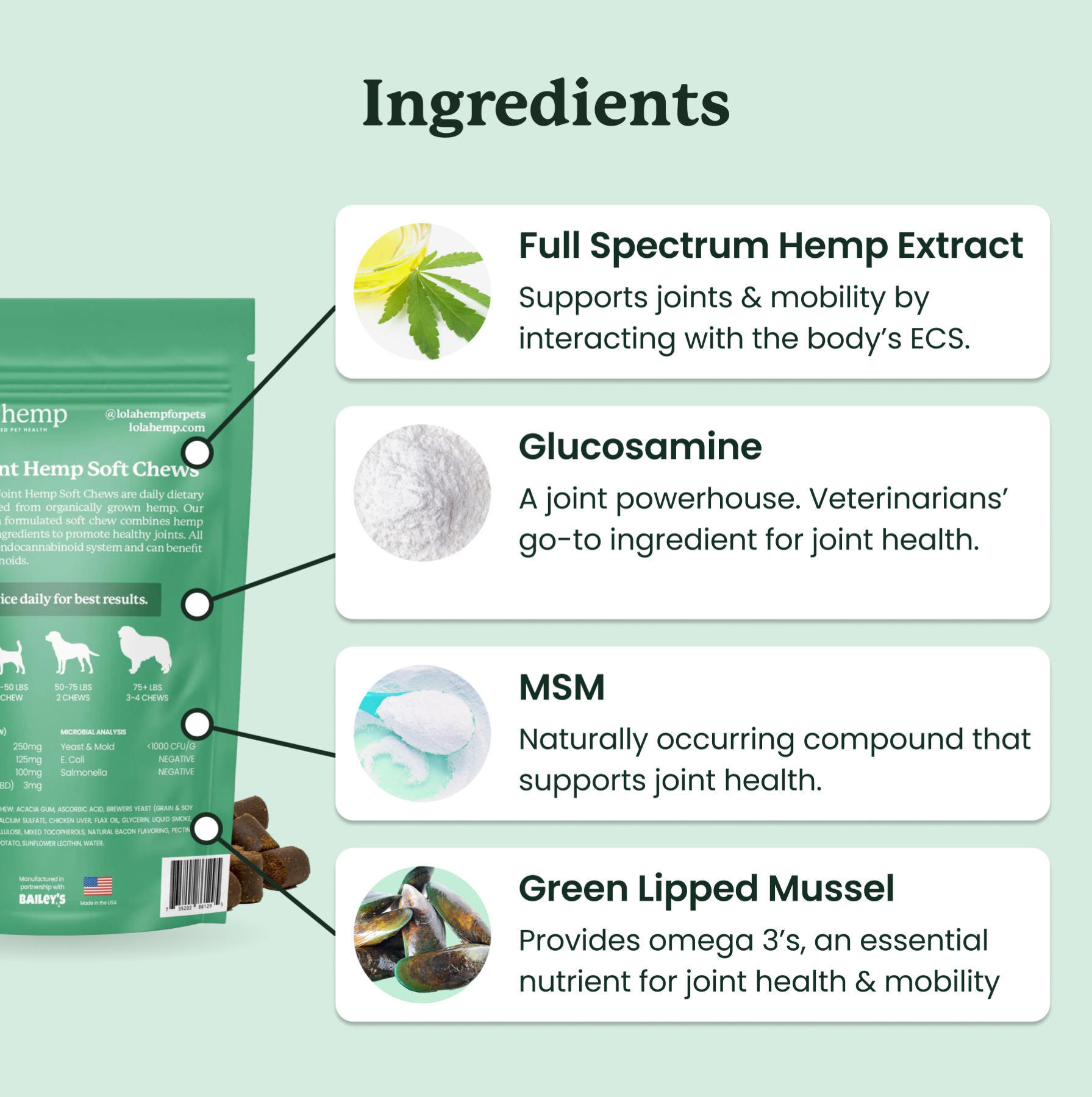Hip dysplasia is one of the most common hip & joint issues that dogs face, and German Shepherds experience it at disproportionate rates to other dogs.
Some estimates show that roughly 20% of German shepherds will develop hip dysplasia at some point in their lives. This is a concerning fact, because hip dysplasia can be very painful and uncomfortable for any dog if it goes untreated.
Fortunately, German shepherds with hip dysplasia don't need to suffer or have a low quality of life. That said, early intervention and treatment can greatly reduce their symptoms and allow them to live healthier, more active lives.
But why do German shepherds get hip dysplasia at such high rates? Let's find out.
Hip Dysplasia is Common in German Shepherd Genes
Breeding practices, such as a focus on sloped backs, intelligence, and strength are largely to blame for the prevalence of hip dysplasia in German shepherds. These traits were prioritized over health, leading to oversights in the development of the breed that persist today.
- Sloped Back: This breed standard puts excess strain on the hips and spine, contributing to hip dysplasia.
- Working Abilities: German shepherds are extremely intelligent, strong, and capable dogs. These are the qualities prioritized when breeding, and while physical prowess is a beneficial quality for a dog to have, the German shepherd's specific form lends itself to hip issues as the dog ages.
The history of German shepherd breeding may have also overused male dogs without a proper hip health screening. Exceptional dogs were likely bred heavily, and that high performance was the result of bodies predisposed to hip dysplasia. Genes from these dogs persist in the breed to this day.
Large Breeds like German Shepherds are More Vulnerable to Hip Dysplasia
German shepherds can be very large, and their rate of growth is rapid. Quick, extensive growth in the first few years of life doesn't give the German Shepherd's hips time to grow properly, and this is the cause of hip dysplasia for many of these dogs.
Additionally, active dogs with large bodies put a lot more strain on joints than smaller dogs do. If your German shepherd's hips didn't form properly and they're active in old age, this can lead to a more rapid onset of hip dysplasia in the adult dog.
What is Hip Dysplasia, Specifically?
Hip dysplasia occurs when the hip joint (the ball at the top of the femur) doesn't fit properly into the joint socket, which may be too shallow for the joint to enter snugly.
This improper fit causes the bones to rub up against each other, causing pain and inflammation. Over time, the symptoms progress as the bones keep rubbing against each other, making it very painful for the German shepherd to walk, stand up, or even live a normal life.
Signs of hip dysplasia include limping, "hopping", diffuclty standing, stiffness, low range of motion, and sensitivity to touch around the hips.
Conclusion
German shepherds are vulnerable to hip dysplasia due to longstanding breeding practices, genetics, size, and their rate of growth as young dogs. The symptoms can be painful and long lasting, but proper treatment methods are available to help dogs remain active and live happy lives.
Natural solutions are available to support dogs with joint issues, and some are particularly effective. The best thing you can do if you spot signs of hip dysplasia in your German shepherd is to schedule a visit to your veterinarian as soon as possible to start treatment.
Why German Shepherds Get Hip Dysplasia: Frequently Asked Questions
Why are German Shepherds more prone to hip dysplasia?
German Shepherds have a genetic predisposition influenced by breed standards, historical breeding practices, and rapid growth rates.
Does a sloped back contribute to hip dysplasia?
Yes. The sloped-back conformation common in German Shepherds increases stress on the hips, which can worsen or trigger dysplasia.
At what age do German Shepherds show signs of hip dysplasia?
Some show signs as early as 5–6 months, while others may not show symptoms until adulthood or senior years.
Is hip dysplasia in German Shepherds preventable?
Not entirely, but proper nutrition, controlled growth, weight management, and choosing breeders who screen hips can significantly reduce risk.
Can German Shepherds live a normal life with hip dysplasia?
Yes. With early diagnosis and proper treatment—including supplements, therapy, or surgery—most German Shepherds maintain a good quality of life.











